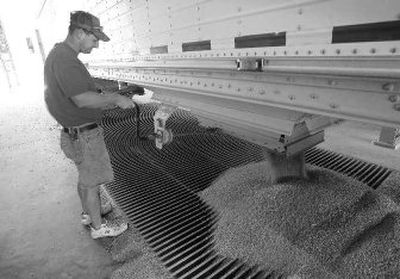Farmers are all ears

DES MOINES, Iowa — An ethanol-fueled boom in prices will prompt American farmers to plant the most corn since the year the Allies invaded Normandy, but surging demand could mean consumers still may pay more for everything from chicken to cough syrup.
Farmers are expected to plant 90.5 million acres of corn, according to the U.S. Department of Agriculture’s annual prospective plantings report released Friday. That would be a 15 percent increase over 2006 and the most corn planted since 1944.
Mother Nature will play a large part in the actual acreage planted. Muddy fields are already slowing plantings in some states.
“We’re awfully wet out here,” said John Scott, a grain farmer in west central Iowa. “Normally by this time of year we’re doing quite a bit of field work. There just isn’t a wheel turning out here. Illinois is in the same boat.”
The move to plant corn is in large part due to a rush to produce corn-based ethanol, which is blended with gasoline. There are now 114 ethanol refineries nationwide and another 80 under construction.
The corn rush was sparked by President Bush’s initiative to support for flexible-fuel vehicles, which are capable of using gasoline and ethanol blends, and his administration’s plan to cut gas consumption by 20 percent in 10 years.
Corn prices were already rising when Bush announced the initiative in Washington on Jan. 23 and there has been growing concern that the corn rush could hurt the poor in less-developed nations such as Mexico, where the crop is a staple used in tortillas.
On Thursday, Cuban leader Fidel Castro wrote in an editorial for the Communist Party daily newspaper that President Bush’s ethanol plan could deplete corn and other food stocks in developing nations, putting the lives of 3 billion people at risk worldwide.
“You’re in the middle of an emergence of a food versus fuel debate,” said Lincoln Ellis, director of asset management for the Linn Group, a Chicago-based privately held financial trading business focusing on commodities and futures.
“This is the pregame show. We haven’t even hit the first quarter.”
Corn is a key ingredient in many foods, from corn syrup found in candies and cough syrup to feed used in meat production.